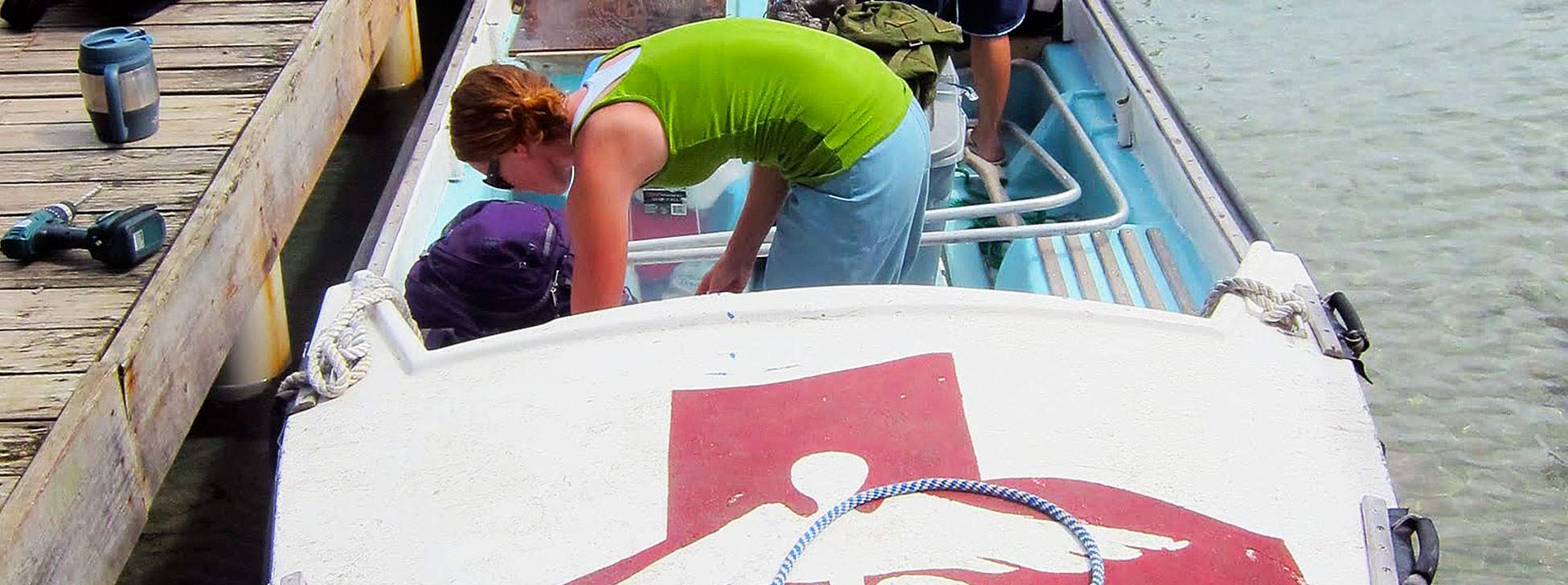Marcia Rodriquez sat nervously on the makeshift examining table. The 16-year-old was pregnant with her second child. As she clutched her one-year-old tightly to her breast, his bladder gave way and pee trickled down through both of their clothes and onto the cement floor. Rodriquez didn't flinch. Even though this was her first ultrasound and first time allowing a male doctor to examine her, she barely spoke. Rodriquez seemed almost hypnotized as the founder and lead physician of Floating Doctors, Ben LaBrot, gently laid her head on the table, pulled up her dress and began the ultrasound.
"The need for Floating Doctors' services are evident—by 6 a.m., a string of hopeful mothers with sick children in tow, pregnant women and young men with machete wounds are all awaiting medical attention."
"Your baby's head is in the right position, Ms. Rodriquez," smiled the American doctor. Pointing to the image of the fetus on his small portable machine, LaBrot explained in broken Spanish exactly what the young mother was looking at, before turning a rubber medical glove into a balloon for her sobbing son. Rodriquez cracked a small smile and seemed slightly more at ease as she left the clinic in Norteno, a tiny village about three hours from the archipelago of Bocas Del Toro on the Panamanian Caribbean.
For the last three years, LaBrot and his team of volunteers have been helping thousands by bringing aid to some of the world's most remote communities, many of which are only accessible by boat. Since its first mission to Haiti after the 2010 earthquakes, Floating Doctors has cruised the Caribbean on its 76-foot mobile home, The Southern Wind.
For the past nine months, the team's boat has been docked in Bocas Del Toro, Panama. According to the Pan American Health Organization, the mortality rate of the indigenous population here is 50 per cent higher than the national average; many deaths are attributed to avoidable issues such as malnutrition and diarrhea. Bocas Del Toro also has the highest infant mortality and child mortality rate of any region in Panama. This is due to a variety of social, geographical and economic issues facing the indigenous population, especially the women. That's why Floating Doctors, although based on Colon Island (the largest in the archipelago), sends mobile clinics to remote towns and brings physicians to those who can't make it to them.
This particular mission to Norteno, was one of the organization's "closer" destinations. After a day of preparation in Floating Doctors' main clinic, in which every bandage, needle, vitamin, toothbrush and bar of soap was accounted for, the team took off to spend three days sleeping in hammocks in the Panamanian jungle. A boat ride, bus ride, muddy trek into the interior and three hours later, 16 volunteers found themselves in the stunning village of Norteno, population 800. The plush hills and dark green forest are breathtaking and amongst the wooden houses and coconut trees, there is a serene sense of calm permeating the community.
Although Norteno is equipped with two midwives who act as nurses and one health care assistant, the majority of locals either defer to the "medicine man" for botanical cures, or avoid going to the doctor altogether. The need for Floating Doctors' services is evident—even though the clinic didn't open until 8 a.m., a long line formed as the sun came up shortly after 6 a.m. Hopeful mothers with sick children in tow, pregnant women and young men with machete wounds all stood for hours, awaiting medical attention.
"They bring a lot of medicine that I don't have," said Demetrio Quintero, the village's revered medicine man. Ha says that Floating Doctors instills a sense of trust in the community, encouraging people to get check-ups or treat their ailments, whereas before they might have just let them sit and get worse.
It's this sense of trust that Floating Doctors wants to continue building in Panama and eventually around the world, using their mobile clinics run by volunteers to visit towns that most people would rarely find, let alone intentionally seek out. LaBrot hopes that within five years the organization will set up permanent bases in other countries, with small, centralized clinic locationaa to accommodate people who want to volunteer. The Southern Wind's next long journey is scheduled for sometime in 2014, when LaBrot and his crew will make their way to Nicaragua.
In the meantime, however, there is plenty of work to be done in Bocas, building trust within the communities, and providing personalized care to patients, like Rodriquez, who are brave enough to seek it.
"I don't care how many [people] we saw today," LaBrot says with a tired smile after his 10-hour day. "If there's one patient here whose life we were able to help to turn in a better direction, then we've made a difference."
Floating Doctors takes medical and non-medical volunteers. For more information please see the Floating Doctors volunteer page.
Add this article to your reading list
